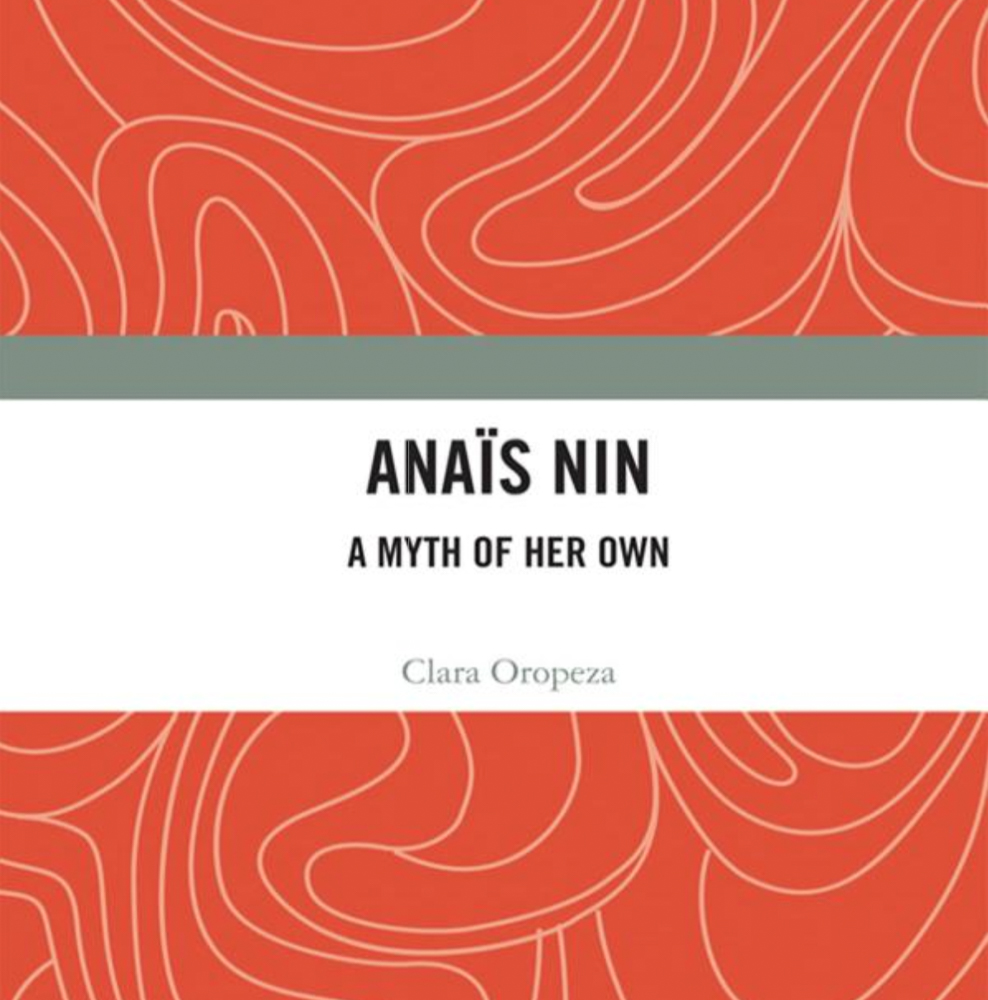Interview with Clara Oropeza
SBCC Prof Writes Book About Anaïs Nin

“I have always been interested — some might even say obsessed — with Anaïs Nin’s capacity for poetic introspection,” said Clara Oropeza. She recently channeled her passion for the French-American writer into a book, Anaïs Nin: A Myth of Her Own. Born and raised in Tucson, Arizona, Oropeza has been the director of the multi-literacy English transfer program for 13 years. She is the author of a number of essays, but this is her first book. I caught up with Oropeza, who spoke about the “minotaur myth” and what Nin can teach us about living in the world today.
What initially drew you to Nin’s work, and how did your interest develop and change during the writing of Anaïs Nin: A Myth of Her Own? I’ve been fascinated by her courage, as she was unafraid to identify with a feminine subjectivity and pioneered a voice against misogyny. Then, ever since reading the sensationalization that followed her posthumously published unexpurgated diaries, I felt a strong interest in one day digging into her archives, and together with research be able to offer some additional perspective and context for them.
I know you’re interested in Nin’s posthumously published Incest: From a Journal of Love. Without a comprehensive understanding of the milieu in which these diaries were written, one could be left feeling confused or merely questioning Nin’s sexual exploits. And there’s so much more there. A large intention for my book was to do just that: provide a larger context for readers to hopefully have more information with which to better appreciate not only those dark and creative years of Nin’s life and writing, but to better understand her as a writer.
And, of course, you write about her as a feminist icon. I feel that Nin’s feminism is a part of the multitudes of histories of foremothers that inform our visions and strategies for social change. In fact, I hear Nin’s feminist stance pulsing through resistance movements today as we continue opposing oppressive structures that aim to disempower women.
You seem to be particularly fascinated by Nin’s novelette The Seduction of the Minotaur. Why is the minotaur myth so important to her, and to you? Jorge Luis Borges claimed that “Myth is at the beginning of literature, and also at its end.” Nin too seemed to believe that. For Nin, the labyrinth in this myth is a metaphor for the chambers of the psyche. The myth was important to Nin because it is traditionally told from Theseus’s perspective — meaning there were unexplored angles in the myth — especially that of Ariadne. So, in her novelette, she rewrites the minotaur myth from Ariadne’s perspective. Through Nin’s rewriting, I have come to see the myth as symbolic of the spiritual possibility to confront shadows of self in the labyrinths of psyche.
You write quite a bit about the popularity of this myth in the 1930s, ’40s and ’50s. In the 1930s, we see allusions to the myth to emphasize the fear and anxiety of the time. We see it in Picasso’s painting “Guernica,” with the allusion to the minotaur; in the 1940s, Borges wrote The House of Asterion, capturing the minotaur’s perspective; and in the 1950s, surrealist Leonora Carrington depicts the minotaur myth in And Then We Saw the Daughter of the Minotaur — then Nin writes this novel in the 1950s. So, the minotaur myth preoccupied the mythic imagination of many.
What does Anaïs Nin have to teach us about how to live in the world today? It’s always been my belief that Nin’s creative method embodies a sensitivity that could be applied to how to live life; by keenly observing our intimate experiences, and synthesizing the relationships between past and present, outer and inner landscapes, and emotional and psychological reality, one can create meaning in life. Also, the cultivation of an interior world, Nin believed, is essential to address calamities in society — not merely to resist alienation from oneself, but to bridge our knowledge of others. This all holds truth today.



